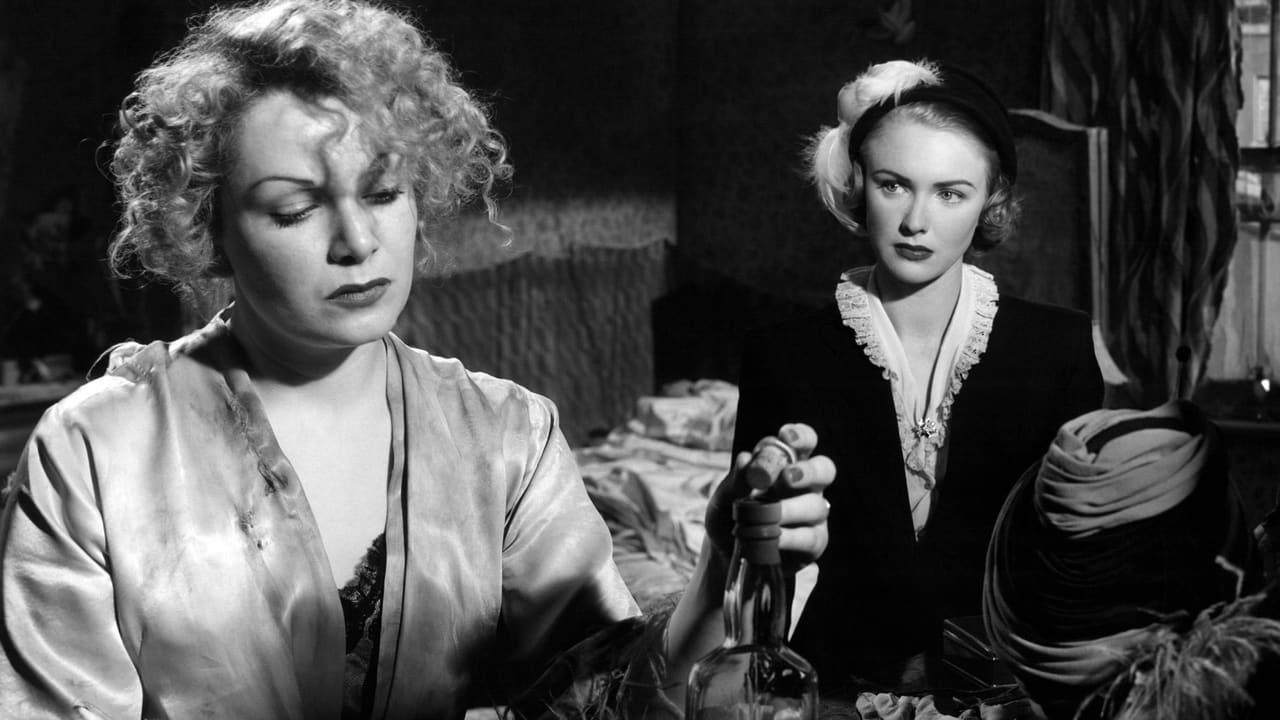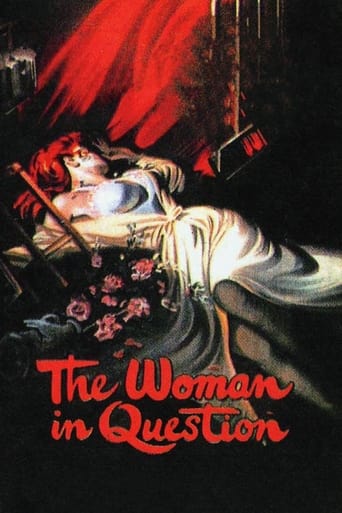



Fantastic!
disgusting, overrated, pointless
I think this is a new genre that they're all sort of working their way through it and haven't got all the kinks worked out yet but it's a genre that works for me.
View MoreThe story, direction, characters, and writing/dialogue is akin to taking a tranquilizer shot to the neck, but everything else was so well done.
View MoreThis film is a slightly below average detective movie which passes the time if you've nothing else to do. As with many similar black and white films of the era "The Woman in Question" offers an insight into post-war Britain, but it doesn't hold a candle to "Brighton Rock" which, like this film, also has a seaside setting.The story takes a while to get started, but Jean Kent is excellent as the murder victim as described to the police by different witnesses. Hermione Baddeley also does well in a dull and overlong role as neighbour Mrs Finch, whose son discovers the murder. There is a small twist right near the end, but it is hardly much of a surprise and the film ending is abrupt and disappointing. 5/10
View MoreFor the first twenty minutes or so, the film feels like a run-of-the-mill investigation film noir, but then it takes a unique spin, providing five different accounts of the events. It is quite interesting to watch from there on in, even though the male characters are rather thin and flat - the investigators in particular. The conclusion is also a bit disappointing and it is all a bit overly melodramatic at times, but the core of the picture - its middle section - is really quite strong, and that is what causes this film to be much better than the average piece of crime investigation film noir out there.
View MoreAt first sight,"woman in question" seems to be a whodunit with a Georges Simenon flavor thrown in.The form seems intriguing,presenting twice some scenes,first from the witnesses' point of view,then from the main characters ' themselves.That's why we have five different portraits of the same woman.She 's so many women that we do not know if she is for example the nice little pet lover who falls for the birdman or the slut whom her sister depicts.Actually the trick is not new at all:see "citizen kane" ,which remains unsurpassed for that matter.And I could mention at least a dozen of movies which follows the same pattern.The crime and the flashbacks recall Marcel Carné's "le jour se lève" (1939).The plot is never really exciting and the final revelation downright disappointing,even if there's a good twist:the scene begins with one of the suspects the culprit and ends up with another one.Although at the top of the credits,Dirk Bogarde is only a supporting actor here.Another disappointment.
View MoreMade the same year - 1950 - as Rashomon which is acclaimed for retelling the same story several ways, The Woman in Question does the very same, allowing Jean Kent to portray five rather different versions of Astra, the fortune teller. The women in the film are much better drawn than the men, despite both the director and writer being themselves men, and despite the narrative framework of the all-male police team. Some would attribute this to Asquith's gay perspective. The combined portrait of Astra is not very flattering, especially her refusal to visit her dying husband, and in her using Pollard, the pet-shop keeper, to work for her for free, but then refusing his polite advances, she is walking a dangerous line. The underlying sadness of her person comes through, but she is not as sad as Pollard.The outstanding secondary character is Mrs Finch, the nosey neighbour from next door who never stops talking. Hermione Baddeley, in the part, practically steals the first part of the film to the extent that the rest almost seems like an anticlimax. Her characterization, her way of speech, the hairnet and the pinafore, owe a lot to the English tradition of comical working-class characters that goes back to renaissance theatre, was developed in the Music Hall, and is a precursor of the Monty-Python housewives chatting over the back fence. That is, it is very easy to see her as done by Dan Leno or Al Reid. A change of emphasis and we have a drag routine.
View More